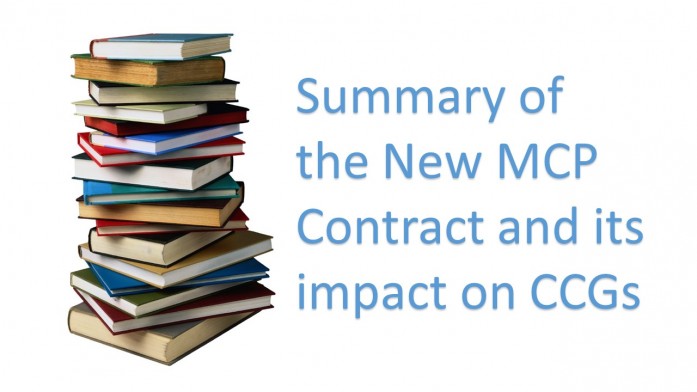In his second summary of the new MCP contract Ben looks at the likely impact on CCGs – and finds it is a case of “out with the new and in with the old”…
What does the new MCP contract mean for CCGs? Well, for all the range of documents published only two target specific groups: general practice (which was not surprising); and commissioners (which was). This was the first major clue that major upheaval is at hand.
The second clue was the way the document on MCPs and the commissioning system starts, “the new models… will not remove the established boundary between commissioning and provision. CCG statutory functions will not change”. You know trouble is coming when a document begins with what is not going to change.
The document then basically says while the statutory duties of CCGs will remain (so no acts of parliament required), most of what they actually do can (and will) be discharged through MCPs. It provides a list which states the only activities CCGs can undertake that MCPs can’t is: produce an annual commissioning plan; develop outcome measures and monitoring for MCPs; take responsibility for the overall performance of the local health care system; and create a contract to spread risk between the MCP and the CCG, as well as have responsibility for providers outside of the scope of the MCP. I.e. not much.
Interestingly it is in the finance document not the commissioning document where it is explicitly stated that management funding will transfer from the CCG to the new MCP: “an assessment will be made of current CCG and CSU spend on activities carried out by the MCP that will support commissioning. The value of this spend will transfer from CCG admin budgets to the MCP whole population budget”.
As a consequence we will need less CCGs, so the residual statutory functions can be carried out at lower cost. To really understand the following quote, insert “will have to” for “may want to” (it is only existing legislation that precludes the document from being more directive), “CCGs may want to consider whether the establishment of a new care model means that it would be appropriate to pool functions and management arrangements with neighbouring CCGs. This may be the case where an MCP or PACS cover the entirety or bulk of the CCG area; and where key CCG staff and capability will transfer to the new provider. In some cases the CCG may want to consider merger with another CCG.”
Even then CCGs won’t operate separately from the MCPs. “CCGs and new care model providers should maximise opportunities for making shared use of administrative resources. For example, creating and operating successful new care models will require a new set of information management and analytical approaches by both CCGs and providers… CCGs and new care model providers should look at how they might work together to develop a shared business intelligence capability rather than invest in potentially more costly separate functions. The same applies to other back office functions e.g. payroll.”
Of course, in the “virtual” MCP model, the changes are not so drastic. When I was looking at the draft of the alliance agreement for the virtual model, at first I was confused by the inclusion of commissioners on the alliance leadership team. Isn’t the point of an MCP that it is an integration of providers, deciding together how to deliver services? But, the document explains, they are included because their role is to make changes to underlying service contracts as a result of agreements within the alliance.
This makes sense in the context of MCPs taking over the lion’s share of what is currently considered commissioning. The only difference is in the virtual model the staff are still employed by the CCG and have not yet transferred their employment. In the partial and fully integrated models these staff will transfer and be responsible for “sub-contracting” between the MCP and its linked providers.
So MCPs carry out a range of commissioning functions, directly provide community services, include public health, and have a relationship based on section 75 agreements with social care. Is there something familiar here? Indeed, there is. The partially integrated model in particular is extremely similar to the (pre-transforming community services) primary care trusts. Everything above, plus a separate national GP contract but an ability to create local enhanced services, GPs as part of the management team (remember PECs?), and a clear role as system leader (integrator). For all the packaging of the new models of care as new and exciting, the new partially integrated model in particular will have to work hard to explain how it will be different from that particular version of the past.
In summary, the impact on commissioners of the formation of a local MCP is the end of a local CCG, and the creation of larger (more distant) CCGs focussed on a much narrower range of functions, and the creation of MCPs as integrated organisations that will undertake many of the existing commissioning functions, and which may or may not look like the old PCTs.


No Comments